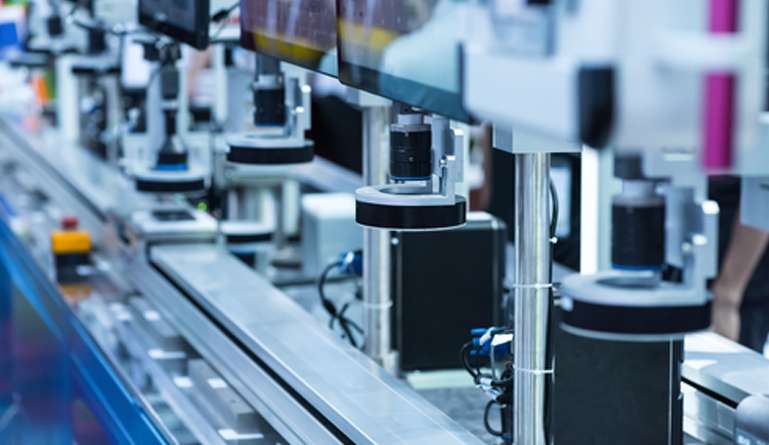Automation

Automation is the technology by which a process or procedure is performed with minimal human assistance. Automation or automatic control is the use of various control systems for operating equipment such as machinery, processes in factories, boilers and heat treating ovens, switching on telephone networks, steering and stabilization of ships, aircraft and other applications and vehicles with minimal or reduced human intervention.Automation covers applications ranging from a household thermostat controlling a boiler, to a large industrial control system with ten of thousands of input measurements and output control signals. In control complexity, it can range from simple on-off control to multi-variable high-level algorithms.
Industrial automation refers to the use of intelligent machines and programmable logics to automate several industrial processes and to minimize human intervention. The automation improves the efficiency and quality of the output and maintains consistency throughout the micro and macro-level processes across the industries. It has become essential for companies to maximize their productivity through automation owing to the changing demands of the end-users.
Indian industries are improving their automation capabilities bringing it at par with global standards due to the pressing need for operational excellence, improved productivity, quality and to maintain six sigma standards in the production processes. This is further supplemented by macroeconomic factors such as the burgeoning middle-class population, rising disposable incomes, urbanization, and focused government initiatives, which are expected to have a positive impact on the growth of the manufacturing industry.
Automation is becoming an important part of all Indian industrial sectors on account of the rising efforts to make manufacturing processes more efficient, achieve zero defects and meet global quality standards. Factory Automation has already been a huge success and will further boost the Indian market. Factors like innovation in Information technology, rise in demand of goods and an increasing disposable income will drive the Industrial Automation growth.
India aims to become a preferred manufacturing hub and be globally competitive. However, it is critical for the industries to be digitally transformed and be future-ready to manage the fast changing business and technology landscape. The Industrial Automation Industry in India projected to grow at a CAGR of 10-12% during 2015-2020, is expected to touch $3.49 billion by 2020.
India equally attractive for domestic and foreign players and give global recognition to the Indian economy. By the end of 2020, it is expected that the Indian manufacturing sector touch $1 trillionand generate 90 million jobs. One of the major factors driving the growth of the Industrial Automation Industry is factory automation on account of the rising efforts to make manufacturing processes more efficient and reduce defect rates. The factory automation market in India has been the fastest emerging segment . Automation systems with innovative features are being set up in all the major industries like automotive, chemicals and mining. Some of the major players in the factory automation market in India are foreign manufacturers namely Siemens, Rockwell Automation, Schneider Electric and ABB Ltd.



